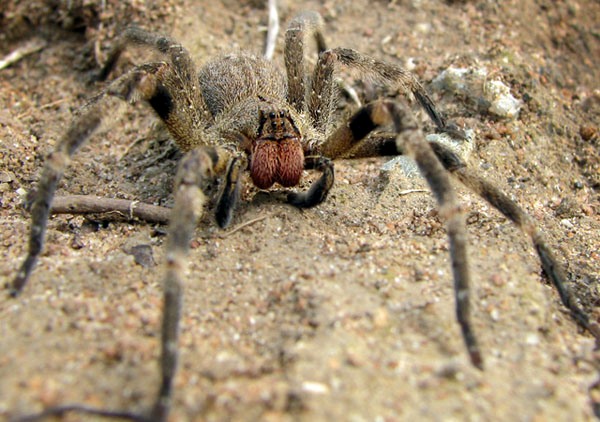The Brazilian wandering spider, also known as the banana spider, is a highly venomous spider found in Central and South America. It is considered to be one of the most dangerous spiders in the world, and its venom can be deadly to humans. In fact, the scientific name for the spider, Phoneutria, means “murderess”.
Brazilian Wandering Spider
The Brazilian wandering spider does not build webs like most other spiders. Instead, it wanders. The spider roams around on the ground, searching for prey. People also call it the banana spider because the spiders make their way into bananas shipments. Fruit exporters unintentionally ship these stow-away spiders from Central and South America to all over the world.
The Brazilian wandering spider’s venom contains a potent neurotoxin that can cause paralysis and death. The venom affects the nervous system, causing muscle spasms, difficulty breathing, and eventually death if left untreated. The venom also contains a compound called PhTx3, which causes an intense and painful erection in men that can last for hours.
How to Avoid Spider Bites
To avoid being bitten, you should be cautious handling bananas or other fruits that may have come from Central or South America. You should always check you shoes and clothing before putting them on, as the spider may have crawled inside. If you think a Brazilian wandering spider bit you, you should seek medical attention immediately. Antivenom is available, and early treatment can greatly improve a person’s chances of survival.
To prevent the spread of the spider, authorities try to control its population and spread. These measures include fumigating banana shipments and using pesticides to kill the spiders.
Despite its deadly reputation, the Brazilian wandering spider is an important predator in its ecosystem. It feeds on insects, other spiders, and even small animals like mice. Its venom is also being studied for potential medical applications, such as treating erectile dysfunction.
READ MORE



